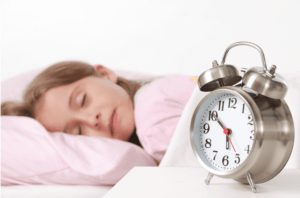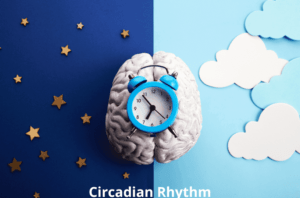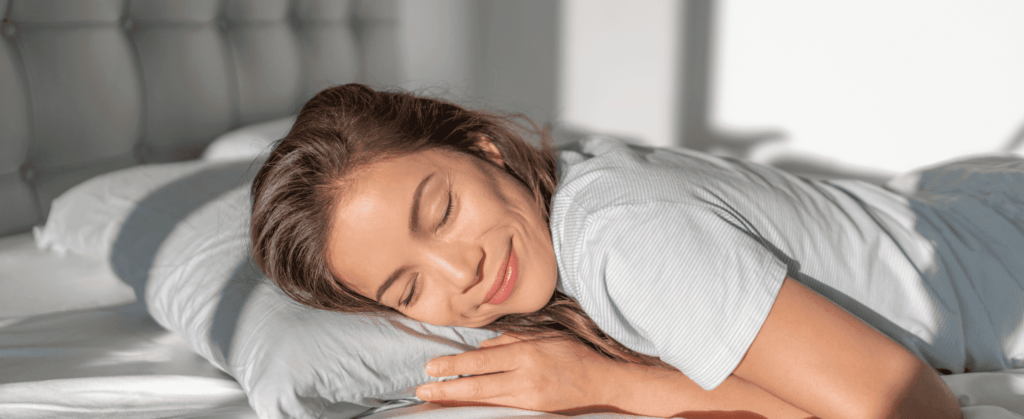What is sleep?
Sleeping is one of the most common but vital requirements of all creatures. Sleep is a state where awareness to external surroundings is reduced to a minimal. However, unlike hibernation or coma, this state can be rapidly reversed.
In simple terms, Sleep is a natural process of rest, when you are less aware of outside events. The fact that normal sleep can be quickly overturned distinguishes it from hibernation and coma. It is the time when your body shuts down, repairs itself, and restores your mind.
Why is sleep important?
You should prioritize a good night’s sleep as it has many benefits for your health and well-being, including reduced risk of illness, improved mood, and better focus, productivity, and relationships. Yet, according to many polls and surveys conducted in different countries, many people are not getting enough sleep – or any sleep, for that matter, which is a matter of grave concern.
Are you one of those people who need more sleep? Here is what you need to know about sleep, its impact on your health, and what you can do to get more quality sleep. Sleep is essential for good health – don’t ignore it!
How does sleep affect brain function?
Good sleep can significantly improve brain health.
You might be surprised to learn that our brain plays a significant role in inducing sleep, staying asleep, and even controlling when and how we wake up. Several parts of the brain, such as the Hypothalamus, Brain Stem, Thalamus, Cerebral Cortex, Pineal Gland, Basal Forebrain, Midbrain, and Amygdala, among others, all contribute to our sleep-wake cycle by restricting or releasing hormones and relaxing our muscles.
All of these activities demonstrate that our brain and body are remarkably active while we are asleep, but it is still unknown how we wake up refreshed and energized after a good night’s sleep.
Sleep Stages:
There are two stages of sleep:
- REM Sleep – Rapid Eye Movement Sleep
- NREM Sleep- Non-Rapid Eye Movement Sleep
What Are REM and Non-REM Sleep?
As per a report published in National Library of Medicine, there are five stages of sleep namely,
Wake | N1 | N2 | N3 | REM. Let’s have a quick look at what they are:
- Wake – This is the first stage, the duration of which depends on whether the eyes are open or closed.
- N1 – This is the second stage or the lightest state of sleep.
- N2 – This is the third stage of sleep. This is the stage when both heart rate and body temperature drops. This is also the stage when instances of teeth grinding (bruxism) occurs.
- N3 – This is a NREM and also the deepest sleep state where awareness to external events is at its minimal.
It is during this stage of Deep Sleep that the body starts its entire repair and rebuilding process and also strengthens the immune system. If someone is woken up suddenly from this stage, chances are they may suffer from a transient phase of mental fogginess (for a few minutes) known as sleep inertia. This is also the stage when sleep walking, night terrors, and bedwetting occurs. - REM – This is the state when dreaming and nightmares occurs which can affect our breathing and heart rate.
One Sleep cycle (Wake to REM) takes around 90-110 minutes and every night we get around 3-5 such sleep cycles. The first REM period is short, and, as the night progresses, longer periods of REM and decreased time in deep sleep (NREM) occur. Usually, 75% of our sleep is spend in the NREM stage.
Sleep Duration
Sleep duration can be defined as the time a person sleeps during night or during a 24-hour period.
How much sleep do you need?
Most people need between 7 and 9 hours of sleep a night. So, how can you tell how much sleep you actually need?
Unfortunately, there is no way to know for sure because we all are different. Our need for sleep can be significantly affected by our age, lifestyle, health issues, work, our geographical location and climatic conditions – and many other factors.
You can, however, use the rule of thumb to get a better idea of your sleep needs: the average adult needs 7-9 hours of sleep each night. And this number grows as you get older – the average senior citizen gets about 9-10 hours of sleep each night. The best way to determine how much sleep you need is to evaluate your performance during the day.
You might be getting enough sleep if you are feeling well-rested, have enough energy to complete your daily tasks, and have time for all your important things. Let’s have a quick look at the recommendations given by the National Sleep Foundation.
| Age Group | Recommended Hours of Sleep Per Day | |
| New-born | 0 – 3 months | 14 – 17 hours |
| Infant | 4 – 12 months | 12 – 16 hours per 24 hours (including naps) |
| Toddler | 1 – 2 years | 11 – 14 hours per 24 hours (including naps) |
| Preschool | 3 – 5 years | 10 – 13 hours per 24 hours (including naps) |
| School Age | 6 – 12 years | 9 – 12 hours per 24 hours |
| Teen | 13 – 18 years | 8 – 10 hours per 24 hours |
| Adult | 18 – 60 years | 7 or more hours per night |
| 61 – 64 years | 7 – 9 hours | |
| 65 years and older | 7 – 8 hours | |
What is a good time to go to sleep at night?
According to experts and different studies (1,2) conducted over period of time, the best time to sleep is between 10 PM and 11 PM.
However, as we all have different commitments, it may not be possible for all of us to strictly follow this norm. Instead, what we can do is bring some changes to our “Circadian Rhythm” and “prepare and follow a Sleep Hygiene“.
Circadian Rhythm:
Circadian Rhythm can be defined as our body’s natural time-keeping system. Our Circadian Rhythm (apart from all the host of functions it manages), is primarily programmed by natural cycles of Day and Night – in other word by the amount of Light around us.

As we grow up, our Circadian Rhythms gets impacted by a lot of factors like,
- Our Geographical Location
- Climatic Conditions
- Daily routine
- Work
- Exercise
- Medications
- Hormonal Changes
- Jet lag
- Exposure to Electronic Devices etc
Humans have a sleep-wake cycle that keeps repeating every 24 hours. The Circadian Rhythm governs this cycle. Any change in any of the above factors can have a significant impact on our body’s functioning, but the best part about Circadian Rhythm is that we can change it and gradually restore it to its optimal level.
Sleep Hygiene:
Sleep Hygiene is a list of steps which we need to follow religiously to improve our circadian rhythm vis-à-vis sleep quality.
The primary step to a good night’s sleep is to prioritize our sleep. Next thing which we need to do is follow the below tips during daytime and during evening hours.
Day Time activities
- Spend some time in bright sunlight or equivalent bright atmosphere.
- Exercise regularly but do avoid heavy workouts at least 2 hours before bedtime.
- Have your meals, especially dinner at a pre-defined time every day.
- Avoid long naps during the day. However, you don’t need to feel guilty if you get a quick Power Nap or Micro Sleep.
- Restrict caffeine to morning or max till afternoon hours.
After Evening Time
It is recommended that you begin preparing for sleep a few hours before you go to bed.
- Avoid drinking alcohol during evening hours
- Avoid using electronic gadgets, including computers, laptops, televisions, cell phones (one of the biggest culprits), etc., at least an hour before going to bed.
- Try listening to some soothing music (rain sound) or read a book while lying on your bed
- Ensure your bedroom has the most comfortable temperature.
- For those of you who have difficulty sleeping quickly you could always try some relaxation method like meditation and controlled breathing to relax your mind.
Note: If your current sleep timings are too early or too late than what has been recommended above (between 10 PM – 11 PM), DO NOT try to change it at one go.
Make small changes every day, like if you go to sleep at around 12 AM then try going to sleep around 11:30 PM for a couple of days and then slowly shift it to 11 PM and then to 10:30 PM or 10 PM.
Sleep Deprivation
Sleep helps your body repair itself and protects your mind from stress. Sleep deprivation can lead to an increased risk of several diseases and other negative effects. A recent poll revealed that the average adult in the U.S. gets about 6 hours of sleep on a weekday, which is not enough for an optimal performance, general wellbeing, and recovery from daytime activities.

Sleep deprivation has been linked to an increased risk of many health-related diseases like:
- Weight gain or Obesity
- Heart disease
- Diabetes, obesity
- Mood Disorders, etc.
Prolonged sleep deprivation can also cause:
- Daytime fatigue and tiredness
- Emotional instability
- Stress management issues
- Focus, concentration, and memory problems
- Mental haze
The above are lists of issues which people do face due to sleep deprivation. There are some factors which can aggravate sleeping problems. They are:
- Snoring
- Anxiety
- Stress
- Travel
The above information about diseases and other factors are not to scare anyone but to make people aware of the importance of the one of the most neglected aspects of our life.
Now let’s have a look at some factors which can improve the quality of our sleep.
- Sleep Hygiene
- Bed
- Mattress
- Pillow
- Bed sheet
- Sleepwear
- Music
- Temperature
- Sleeping Aids
Sleep Hygiene
Following a proper sleep hygiene is one of the primary factors which can ensure that you naturally get a good night’s sleep. If you need more information about it, just let us know and we’ll dedicate an entire article with facts and data from the most reputed institutes across the globe.
Bed
Our bed and everything on it can be critical factors determining the quality of our sleep. The bed frame provides support to our body and also ensures the mattress stays in place. The ideal bed needs to be strong enough so that it stays steady and doesn’t bend with time.
Mattress
A good and comfortable mattress has a significant contribution not just to our sleep but also to our overall health as it helps in proper alignment of our spine. Moreover, a mattress can help us wake up comfortably in the morning without any muscle or joint pains.
Pillow
Pillows are another accessory which aligns our head and neck with other parts of our body. People with some health issues like snoring, cold, backpain etc can all benefit from a good pillow.
Bed Sheet
The quality of our Bedsheets can enhance or diminish the quality of both the mattress and the pillow as it is direct contact with our skin. If the bedsheet does not allow proper airflow, excess heat can get trapped inside and consequently increase our body temperature too – which can result in disturbing our sleep.
Blankets
The use of blankets is subject to certain factors. If it’s too cold, then blankets can provide you with warmth. Weighted blankets can actually improve your sleep quality by stimulating the production of certain hormones that help you sleep better. However, you (especially couples) have be careful in choosing your blanket as no two people are usually comfortable with the same blanket. You can definitely opt for 2 different blankets to ensure both of you get to sleep well.
Sleepwear
Sleepwear is a type of clothing which is specifically designed to improve your sleep quality. A good sleepwear can be defined as a loose-fitting night cloth which are made of breathable fabric.
Music
According to a UNSW Sydney study, Music can be useful for persons who struggle to sleep due sleeplessness caused by anxiety or stress, rather than medical issues like sleep apnea (also referred to as sleep apnoea)”.
However, some other studies also state that the same may not be true for everyone. Whether or not someone may benefit from music depends on a lot of factors like:
- Age and gender of person listening to music
- Choice of music
- Health conditions.
Room Temperature
The thermal environment is one of the most important aspects to consider for ideal sleep conditions. In order to sleep deeply and uninterruptedly, it is essential that the temperature in your bedroom be kept at a comfortable level.
We are about to share some interesting facts about temperature and sleep:
- Our Circadian Rhythm (which regulates Sleep-Wake Cycle) is closely linked to external environment and our own body temperature. As soon as our body cools, the pineal gland (located in our brain) starts releasing melatonin – a sleep inducing hormone. Low temperature when aligned with low light conditions activates the onset of sleep.
- The ideal room temperature varies from person to person depending on personal preference and health condition, but an ideal room temperature would be somewhere around 65-77degrees Fahrenheit (18–25 degrees Celsius).
- Taking a hot bath 2-4 hours before going to bed reduces sleep latency and increases sleep depth.
To know more about Mattresses, Bedding or Pillows, check out our home page or click on any of the links given here.
